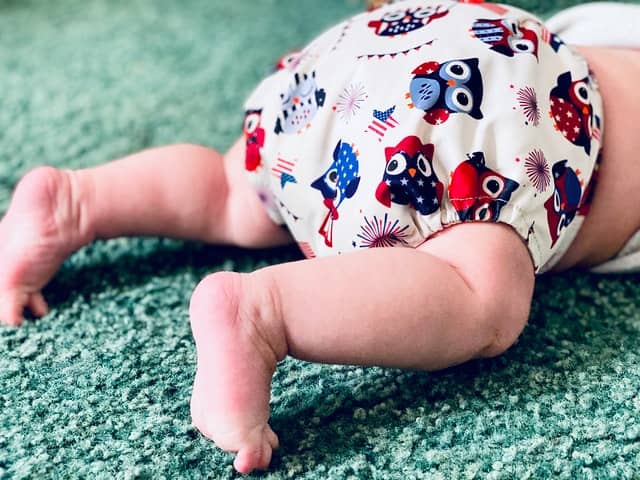When you have babies, diapers can be a major topic. There’s so many options, costs, and opinions. When we started, I naively thought we’d just buy “normal diapers” and that’s it. After our son turned 1.5 yrs old though, that changed when I realized that our diapers were not enough. After several days of him waking up in the night soaking wet I realized that I needed to learn more.
While overnight diapers are not strictly necessary, you’ll likely find they are indispensable. You essentially have two options…strap more absorbent material to your baby at nighttime or get them to make less urine overnight.
Are overnight diapers necessary?
Nope. Overnight diapers aren’t necessary, but oftentimes will be the best option. If your little baby is consistently overwhelming their current diaper and wetting themselves and the bed, then you should definitely consider overnight diapers. However there are also many other options you could look to.
As your child ages, they will be able to hold more and more liquids in their little bellies which eventually means more and more urine. There will come a time when no standard diaper can hold up for a full night. At that point you should either switch to overnight diapers or consider potty training.
What is the difference between overnight and regular diapers?
The primary difference is a larger, more absorbent core. Essentially an overnight diaper is just a bigger bucket. This larger core does make the diaper bulkier, which might make pajamas a much tighter fit.
Many overnight diapers also include linings which are softer than a regular diaper. These diapers are meant to be worn for a much longer time than a regular diaper, so they are often softer. This helps them to avoid irritating your baby’s skin and keep them more comfortable during the night.
Price is also a difference. An overnight diaper can cost 25% or more than a regular diaper.
How do I keep my baby dry at night?
If your baby is consistently wetting the bed during the night, there are several options you can try to help them stay dry:
Overnight diapers. Buying these special diapers is an easy, and sometimes cost-effective, option. You might need to experiment with brands to find the right one for your baby.
Limit liquids before bedtime. If you reduce or eliminate liquids before bedtime, then that will also reduce the amount of urine the diaper will need to hold during the night. By this I don’t mean making your child go through the night thirsty…perhaps instead of a full glass of water a half hour before bed, they just take some sips. Try to have them drink more earlier in the evening so they are less thirsty at bedtime.
Two regular diapers. Put two diapers on your child, with a small tear in the outer lining of the inner diaper (to allow urine to flow to the outer diaper). This is similar to the concept of a nighttime diaper…strapping more absorbent material around your baby. It’ll probably be more expensive than just getting overnight diapers, but it is an option.
Occasionally when we would run out of overnight diapers we’d have to switch to this method. It worked well, but I was always sad to go through diapers so quickly.
Diaper Liners. You can use diaper liners to help add more absorbent material. These liners are typically designed for cloth diapers, but they work just as well as a regular diaper. An added bonus is that they’re reusable, so in the long run they could be a cost saving option.
Ensure a good fit. If your baby’s diaper is a little too big, or isn’t positioned well on them, then gaps can form between the diaper and the skin. This can allow the urine to leak out even before the diaper reaches capacity.
Finding a diaper that fits snugly and being careful to position it well can eliminate leaks and ensure that the diaper holds all the liquids. This was often an issue for us at night when our son was tired and not super cooperative, making sure the diaper was on straight and snug was not always first priority.
Potty training. If your child is ready to be potty trained, then that could help reduce accidents at night. They still definitely could, and most likely will, have more accidents, but it could help reduce them. Children can be potty trained much earlier than most people think, sometimes as early as 18 months. We potty trained our son when he was 2.5, and overall it went quite well. It took about a week, and several loads of urine soaked laundry, but in the end he rarely has an accident anymore. And we save a ton of money on no more diapers.

